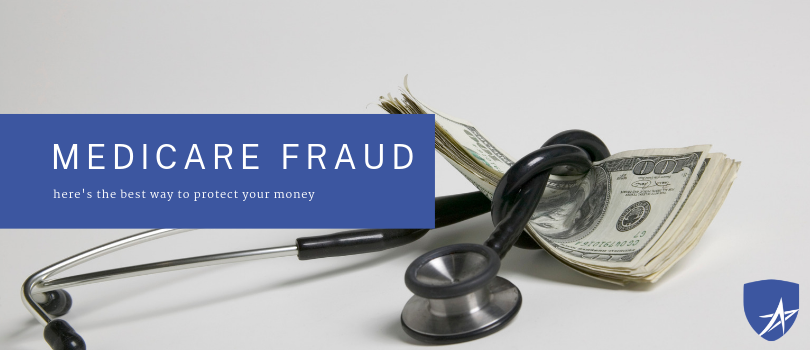Money lost to Medicare fraud or abuse is
$60 billion annually. While phishing (someone posing as legitimate requesting sensitive information) tends to be the most obvious scam, there are deeper levels of Medicare fraud. Many instances of fraud are conducted
even by providers. To protect your money from these activities, get familiar with these practices and use our tips to be safe from Medicare fraud.
1. The provider bills Medicare for services you never received (also known as phantom billing)
It’s important to
collect your receipts and mark the dates whenever you get health care services. You will be able to check which services were provided (or not provided) by simply matching your records with the *statements provided by Medicare. So, make a habit of double checking your receipts and the dates to avoid getting charged for the services you may have never received.
*Your statements can be the Medicare Summary Notice (MSN) form if you have Original Medicare, or they may be different forms. Just make sure it lists the services you received.
2. Your healthcare provider bills Medicare for more expensive services than what you received
Before you get health care services, it’s better to ask and
find out what types of services you are going to get. And try to know at least the estimates for the services and how many procedures or times you have to go to providers or facilities needed to finalize the health care treatments. In this way, you can notice if you’re being overcharged in the statements you get from Medicare.
3. Your doctor offers services not medically necessary or overprescribes unnecessary medications
To prevent this Medicare fraud,
ask questions about your medical care and how it relates to your specific Medicare plan. You may need to do some research about the health care treatments needed based on your health conditions. Take an active role in learning about your healthcare options and your Medicare plan as much as you can. Doing so will help you be aware of what bills you will be responsible for and what you can (and perhaps should) say no to.
4. Your provider bills for each individual step of a procedure (as if it occurred in separate sessions) by misrepresenting the dates, locations, and services
Even though you collect all your receipts and mark the appointment dates, providers can use this trick because it’s easy to look past it. After all, the name of the medical services matches as listed on your statement provided by Medicare. So, you’re strongly advised to go over your statements and find out if your health care sessions were operated in separated times. We also highly recommend you ask your provider to itemize the services you got in order of dates.
5. Overprescribing medicine when it is unnecessary
This is particularly worrying when prescriptions have so many side effects. To protect yourself from this fraud, be careful whenever you spot a change in your dose and/or types of medication you have been taking.
Ask questions about the reason your medications have changed. You can even ask if it is still necessary for you to be on medications you have been on for years. If you are suspicious, you can compare how and when your medication changed by comparing the prescriptions in the receipt you collected.
How to report Medicare fraud:
• Call 1-800-633-4227 (1-877-486-2048 for TTY users)
• Report it to the Office of the Inspector General online, or at 1-800-447-8477 (1-800-377-4950 for TYY users)
Try to have these ready when you report Medicare fraud:
• Your name and Medicare Number
• The provider’s name and facilities
• Any number identifying you
• The service or item you’re questioning
• The date the service or item was supposedly given or delivered
• The date on your MSN
• The payment amount approved and paid by Medicare
• The reason you claim Medicare shouldn’t have paid
• Any other information showing why Medicare shouldn’t have paid for a service or item
(Provided by Medicare.gov)


